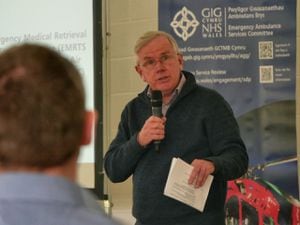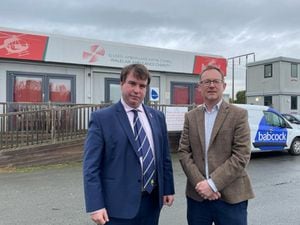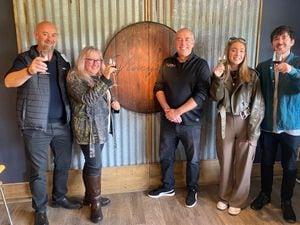Can Labour win? Stranger things have happened – we think?
Pollsters told us Brexit would never actually happen and Trump would not be president. Toby Neal imagines what might be if they are as reliable again.
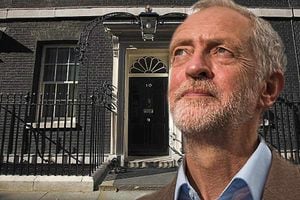
The morning of Monday, June 12, 2017. Tired but exultant, the Prime Minister walked to the lectern outside Downing Street to speak to the assembled media.
"This was a victory for all Britain." The emphasis was very particularly put on the "all".
"Where there is division, we shall bring unity. Where there is injustice, we shall create a fairer and better Britain. A truly United Kingdom which works for everyone."
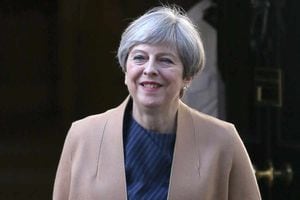
And so on.
Standing nearby in one of her all-red outfits, Deputy Prime Minister Nicola Sturgeon smiled inwardly.
"United Kingdom my eye," she thought to herself.
"As soon as we get another referendum, I'm outta here."
It had been one of her red lines in that dramatic weekend of talks following the June 8 poll.
Next to her was the Foreign Secretary (with Special Responsibility for Brexit), Tim Farron. He stood with his eyes half closed, looking as if he had spotted something of particular interest in the distance. Determined to come across as both serious and statesmanly, it was the Paddy Ashdown look which he had been practising.
His red line in those talks was to forge a Brexit deal which worked for everybody in Britain. This would mean full membership of the single market, and that would in turn mean signing up to all its membership terms. Anything else would be disastrous for the nation, Tim mused.
He might be able even to negotiate a continuing place for Britain around the EU table. It was, he thought to himself, in the best interests of the country.
Prime Minister Jeremy Corbyn finished his speech to the media to cheers from a group of supporters who had been allowed through the gates of Downing Street for the historic occasion.
He had done it, against all the odds. Not quite as he had wished. Labour still had far fewer seats than the Conservatives, but after that weekend of hard talks with the SNP and the Lib Dems, they had managed to create a keep-the-Tories-out coalition.
How did it happen? The opinion polls were wrong yet again, but were not too far out this time, as the Tories were the party with the largest share of the popular vote. What had taken pollsters and commentators by surprise was the way the voting patterns had fallen.
London was solidly Labour. In Scotland, the SNP repeated their success of 2015. The Lib Dems had had a Brexit-inspired resurgence, regaining lost ground. The upshot was that when the counting of seats came to be done, Theresa May had fallen short of an overall majority and the weekend of horsetrading had given Labour, the SNP, and the Lib Dems the opportunity to form a coalition government, which they were calling The Progressive Alliance.
Donald Trump had phoned Downing Street in the early hours to congratulate Jeremy. In the flush of victory, Mr Corbyn forgot that he had vowed to himself that he would never accept a call from Trump. There was a gracious and polite conversation.
In the media there had been hysteria about how Corbyn as Prime Minister would destroy Anglo-American relations for a generation. But Donald Trump couldn't care less. America first.
A bored and distracted President made perfunctory small talk with the Limey, while tweeting on his mobile with his free hand, and wondering how long it would be before he'd get a chance to press that red button on his desk in the Oval Office and liven things up.
There had been some trouble as a consequence of the unexpected General Election outcome. In The City, there were sieges at a number of wine bars where City traders had locked themselves in and were refusing to come out. Some were threatening to drink themselves to death. Jubilant Corbyn supporters were stopped by police when, as a joke, they tried to deliver champagne to help them on their way.
The Stock Market had been suspended because there was nobody in a fit state to run it. At the airports there were reported sightings of tax-dodgers, wealth-extractors, leaders of multi-national corporations, and various leading lights of the corrupt elite, all carrying bulging suitcases and booking flights.
Newly-elected Labour MPs meanwhile were conflicted. It was issues that mattered, not personalities, they had said repeatedly during the campaign. That was why, they explained, Jeremy Corbyn did not appear on any of their electioneering material, becoming a sort of invisible leader, just the way the Labour candidates liked it.
This was though an entirely new situation and they had reasoned that if he offered them a place in the coalition cabinet, it was their duty to the nation to take it. Very few of them, however, got the chance. Jeremy gave all the Labour seats in the coalition cabinet to his London loyalists.
They had said it was impossible. But they had said that Britain would vote Remain. They had said the Tories would not be able to get an overall majority in 2015. They had said Donald Trump would not win. They had said Jeremy Corbyn would never become leader of the Labour Party in the first place.
They were wrong. Extraordinary times.
The Tories were in a state of shock. Of Theresa May, nothing had been heard. A search party was sent to Snowdonia in case she had gone for one of her famous walks there.
There were, though, calls from assorted Tory grandees for an immediate second General Election.
Of course, they said, they respected the result – but the electorate had the right to change its mind.
In any event, they argued, Jeremy Corbyn becoming Prime Minister was a "material change in circumstances" which meant that a new poll was entirely in order.
Jeremy concluded his victory speech by saying "the work starts now" and then smiled and waved for the cameras before, taking no questions, he turned on his heels and walked through the famous door to 10 Downing Street.
Unseen by the media, he walked straight through the building and left by a back door, catching a taxi. He had no intention of living or working at Number 10 – he would work from home. He didn't like the term "Prime" Minister either. So elitist. Cabinet Chair was more to his liking.
Invest in the NHS. Raise the minimum wage. Tackle homelessness. Stop old folk being lonely. Tax and hunt down the sponging super wealthy until their pips squeak.
Jeremy was living the dream.

